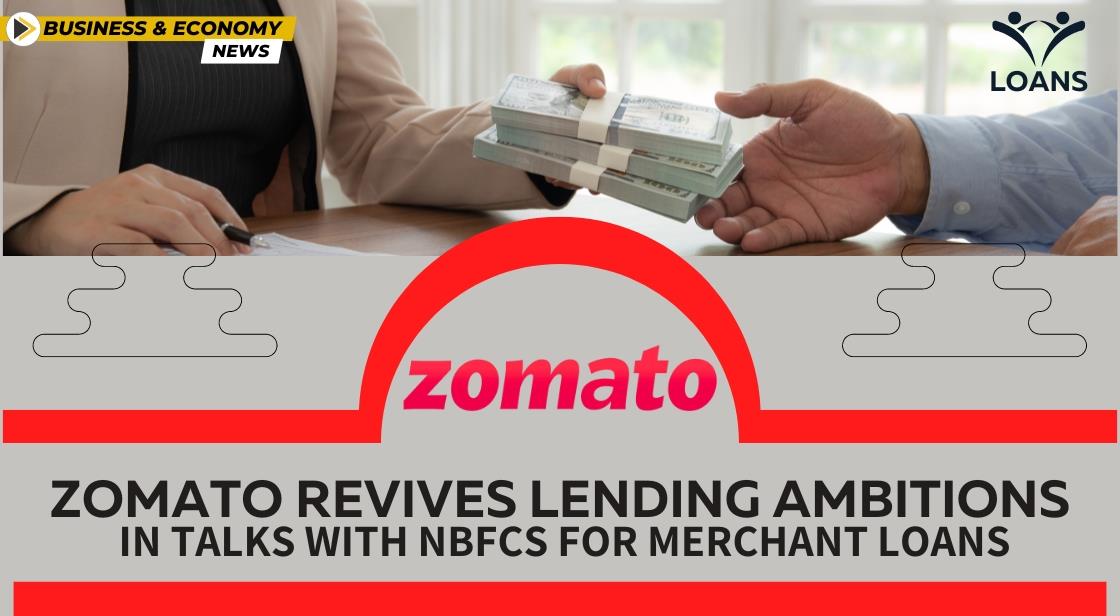Zomato Revives Lending Ambitions: In Talks with NBFCs for Merchant Loans

News Synopsis
Zomato revives its lending service, collaborating with NBFCs to offer working capital loans to partner restaurants. The initiative includes a new leadership role and a focus on a Loan Service Provider model.
Zomato's Resurgence in Lending: An Overview
Revival of Lending Ambitions:
After pausing its lending ambitions for a few years, Zomato is now looking to revive its lending services. Engaging with multiple non-banking financial companies (NBFCs), Zomato aims to provide working capital loans to its partner restaurants.
Operating as a Loan Service Provider (LSP):
In this renewed effort, Zomato plans to operate as an LSP. This means that the company will source loans from its partners and disburse them to potential borrowers for a fee. Zomato may also be responsible for collections from end-users.
Behind-the-Scenes Efforts:
The Zomato team has been working on this initiative for quite some time, and an announcement regarding the same may be expected in the next quarter, according to sources.
Leadership and Past Endeavors:
Zomato has brought in Akshay Gautam from Indifi Technologies to lead this initiative. While Zomato had started lending back in 2021, it paused its efforts to obtain its own NBFC license. Now, it aims to restart lending under a partnership model.
Competitive Landscape:
Zomato's arch-rival, Swiggy, ventured into lending in 2017 with its "Capital Assist" program. Swiggy claims to have disbursed significant amounts through this program, extending its services to delivery partners as well.
Zomato's Journey:
Zomato entered the lending business in 2020, initially partnering with NBFCs. However, it aspired to control the entire financial chain, leading to the incorporation of Zomato Payment Private Limited (ZPPL) and Zomato Financial Services.
Challenges and Strategy:
Zomato faced challenges in selling its payment gateway to partners and paused its co-lending business while waiting for its NBFC license. Unlike Swiggy, which adopted a co-lending model, Zomato aimed to lend via its own books.
Data Advantage:
Zomato possesses imperative data of its partners, including their working capital requirements, credit limits, and sales, which could facilitate its lending operations.
Revenue Model:
The commissions between Zomato and lenders could vary, typically ranging between 2-3 percent for unsecured loans. Zomato's structure for credit lines remains to be seen as it competes with Swiggy's traditional LSP model.
Innovative Approaches:
Other players like US-based Doordash have introduced cash advances based on restaurant sales performance, eliminating traditional credit checks. However, such approaches come with risks, particularly in cases of restaurant closures.
Conclusion:
Zomato's resurgence in lending signifies its commitment to supporting partner restaurants. As it navigates regulatory hurdles and competition, its approach to structuring credit lines will be crucial for its success in the lending space.
You May Like









